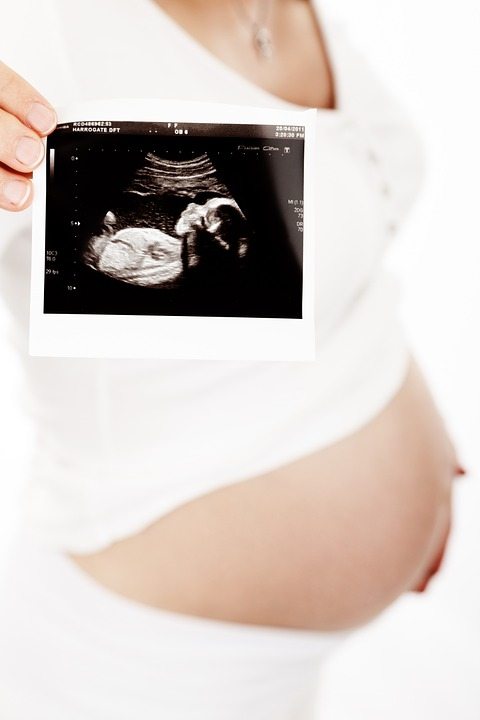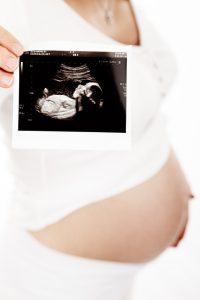Antenatal care can be overwhelming and figuring out where to start can be daunting. When you find out you are having a baby and you are staring at the home pregnancy test the feelings are indescribable, and then you think what now? What do we do now, where do we start, who do I call?
Throughout your pregnancy you will be offered multiple tests and scans to keep an eye on you and bub, but what are they, and what is each test for?
The very first test you will need is a blood test to confirm the pregnancy. When you are pregnant your body produces Human chorionic gonadotropin (hCG) which increases quickly in the first few weeks of your pregnancy, so often your Doctor will recommend repeat testing if your initial levels are low.
1st Trimester
Sometimes you will be offered an ultrasound within the first 8 weeks which is known as a Dating Scan. The ultrasound will measure your baby and give you an Estimated Due Date (EDD). Around the same time your GP will take will advise you to have routine blood work to document your Blood Group and Iron levels, Immunity to Rubella, exposure to Hepatitis and screen for sexually transmitted diseases. Your Rh type is also a simple blood test at the same time. If you’re Rh-negative, and your baby turns out to be Rh-positive, this can cause serious health problems for your baby. But no-one knows what your baby’s blood type is until after birth. So if you’re Rh-negative, you’ll be offered a special injection called Anti-D at your 26-28 week antenatal appointment and your 34-36 week appointment.
Your Doctor may also request a urine sample, as some urine infections don’t have any symptoms it’s an easy and quick way to check.
Also within the first 11-13 weeks of your pregnancy you will have a more formal ultrasound which combined with your blood work is to ensure that everything is going along well. Throughout this scan you will be able to see your baby and hear the heartbeat. The ultrasound will also confirm the EDD from the previous scan, determine how many babies you are having and can screen your baby for Down syndrome and other chromosomal conditions.
Since early 2013 Non Invasive Prenatal Testing (NPIT) or The Harmony Test has been available in Australia at a cost of around $500. NIPT can be done as early as 10 weeks and takes blood from the mother to determine your baby’s genetic makeup and material (DNA), gender and a more accurate screen for genetic conditions and abnormalities.
2nd Trimester
Around 18-20 weeks you will have another ultrasound, generally by this time you will have felt your baby moving or kicking so hopefully he or she will be active on the screen too. This scan will monitor and check your baby’s development; including that structurally and anatomically your baby is doing well. Your placenta will be checked on ultrasound, to determine it is the correct size and in the right place which ensures a healthy environment for you and baby. If you haven’t already found out, and you want too this is the ultrasound that your baby’s gender may be revealed.
Throughout your second trimester you may also be offered some more blood tests called the Maternal Serum Screening, which if you haven’t had blood work or the NIPT in the first trimester and you would like to screen for any chromosomal or genetic abnormalities is a simple blood test for you. This test is optional and completely up to you.
If all is going well with your pregnancy and you and your baby are low risk, the last test you will be offered is the Glucose Challenge Test (GCT) to test the levels of glucose in your blood stream and to determine your risk of Gestational Diabetes.
3rd Trimester
You’re almost there!! Not long to go now and thankfully only a couple of tests to think about as you prepare you and your family for the exciting bundle of joy about to enter the world.
Earlier in your 1st Trimester you will have had your blood group tested, if you have a negative blood group you will have another blood test in the final trimester to test for antibodies and to determine if you will need and anti D injection.
Between your 36th and 38th week of pregnancy, your Doctor may offer you a vaginal swab test for Group B Streptococcus (GBS). The results from this test will allow your medical team to know that your baby may need some simple treatment when they are born to prevent them from becoming unwell.
What other tests are available?
You may have heard of Chorionic Villus Sampling (CVS) and Amniocentesis. Both these tests are more invasive procedures that test for chromosomal abnormalities and genetic disorders by looking at your baby’s Karyotype.
Chorionic Villus Sampling – A sample of your placenta is taken, usually through your belly but depending on your baby’s position can sometimes be taken via your cervix. Generally CVS is preformed around 11 – 12 weeks.
Amniocentesis – A sample of the amniotic fluid surrounding your baby is taken with a needle under direction of ultrasound. An Amniocentesis is generally preformed around 15 – 18 weeks.












